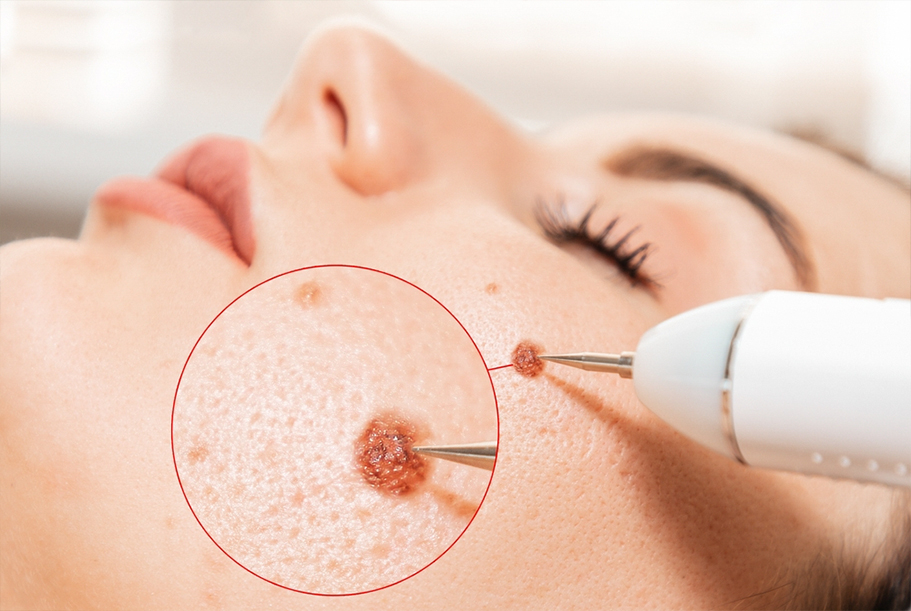Skin rashes are a common dermatological concern, affecting people of all ages and skin types. They can appear suddenly or develop gradually, causing symptoms such as redness, itching, swelling, or irritation. While some rashes clear up quickly on their own, others may persist, spread, or worsen without proper care. Dermatologists offering Rashes treatment in NYC provide personalized care to quickly identify the cause of irritation and restore skin to its healthiest state. Understanding the causes of skin rashes and knowing the most effective treatments is essential for restoring skin health and comfort.
What Is A Skin Rash?
A rash is a visible change in the skin’s appearance and texture. It may involve discoloration, bumps, blisters, or scaling. Rashes can be localized to one area or spread across larger portions of the body. They are typically a sign of underlying inflammation or an immune response to an irritant, allergen, or infection.
Common Causes Of Skin Rashes
Finding the cause is the first step to effective therapy for rashes, which can have a variety of triggers. Some common causes include:
- Allergic Reactions: Contact with allergens like certain skincare products, detergents, or plants such as poison ivy can cause allergic contact dermatitis.
- Irritants: Harsh chemicals, soaps, or fabrics may trigger irritation and redness.
- Infections: Rashes may result from bacterial, viral, or fungal illnesses. Examples include ringworm, impetigo, or chickenpox.
- Chronic Skin Conditions: Conditions such as eczema, psoriasis, and rosacea can cause recurring rashes.
- Heat And Sweat: Heat rashes often occur in warm, humid environments when sweat ducts become blocked.
- Medications: Some drugs can cause rash-like side effects or allergic reactions.
Recognizing When To Seek Medical Help
While mild rashes may improve with over-the-counter remedies and self-care, it’s important to consult a dermatologist if you experience:
- Rapid spreading of the rash.
- Severe itching or pain.
- Infection symptoms include pus or increased oedema.
- Rash accompanied by fever or breathing difficulties.
- No improvement after several days of home treatment.
A timely evaluation guarantees that you receive the right treatment for your particular ailment and helps avoid problems.
Best Ways To Treat Skin Rashes
The right treatment for a rash depends on its cause. Dermatologists use a combination of approaches to reduce inflammation, relieve symptoms, and address the underlying trigger.
- Avoiding Triggers
If your rash is caused by an allergen or irritant, identifying and avoiding the trigger is the most effective prevention strategy. This may involve switching skincare products, laundry detergents, or fabrics.
- Topical Medications
Creams or ointments containing corticosteroids, antihistamines, or soothing agents like calamine can reduce redness, itching, and swelling. For fungal or bacterial rashes, medicated creams containing antifungal or antibiotic ingredients are often prescribed.
- Oral Medications
In cases of severe allergic reactions or widespread inflammation, oral antihistamines, corticosteroids, or antibiotics may be necessary.
- Moisturizing And Barrier Protection
Keeping the skin hydrated with fragrance-free moisturizers can help heal damaged skin and prevent dryness that worsens irritation. Barrier creams may also be recommended for those exposed to frequent irritants.
- Cooling Compresses
Applying cool, damp cloths to the affected area can soothe itching and reduce inflammation, especially in heat-induced rashes.
- Medical Procedures For Chronic Rashes
For persistent conditions like psoriasis or eczema, dermatologists may recommend phototherapy, prescription-strength topical treatments, or advanced biologic medications.
Preventing Future Rashes
Prevention often involves a combination of healthy skin habits and awareness of potential irritants. Some strategies include:
- Using mild, fragrance-free soaps and skincare products.
- Wearing loose, breathable clothing in hot weather.
- Protecting skin from excessive sun exposure.
- Practicing good hygiene while avoiding overwashing.
- Keeping nails short to reduce damage from scratching.
Final Thoughts
Skin rashes can be uncomfortable and disruptive, but they are often manageable with the right approach. By understanding their potential causes and knowing when to seek professional care, you can effectively treat existing rashes and prevent new ones from developing. Whether your rash is the result of an allergy, infection, or chronic skin condition, a dermatologist can provide targeted treatments that restore skin health and help you feel comfortable in your own skin again.



